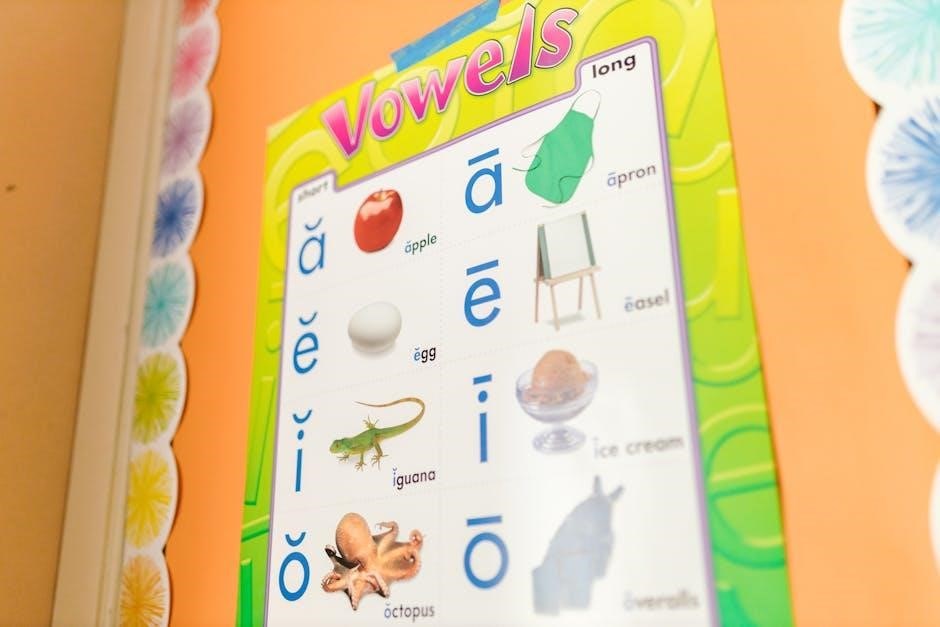Babysitting is a responsible and rewarding job that requires trust, patience, and dedication. This guide offers essential tips and insights to help you excel in caring for children, ensuring their safety, and creating a fun, engaging environment. Whether you’re a new sitter or an experienced caregiver, this guide provides practical advice to build trust with parents and kids alike;
The Importance of Babysitting
Babysitting plays a vital role in providing parents with peace of mind while they are away. It ensures children’s safety, emotional well-being, and engagement through fun activities. A trusted sitter helps with homework, meals, and bedtime routines, fostering a sense of security. Babysitting also allows children to develop social and cognitive skills through interactive play. For sitters, it builds responsibility, patience, and communication skills, while offering a rewarding way to connect with kids and support families. Effective babysitting creates a positive environment where children thrive and parents feel confident in their care.

Key Skills Required for Babysitting
Successful babysitting demands a combination of essential skills, including patience, reliability, and good communication. Sitters must be attentive to children’s needs, ensuring their safety and well-being. Basic first aid knowledge is crucial for handling emergencies. Organizational skills help manage routines and activities, while creativity keeps kids entertained with games and crafts. Trustworthiness builds strong relationships with parents and children, and adaptability allows sitters to handle unexpected situations. These skills ensure a positive, engaging experience for everyone involved, making babysitting both effective and enjoyable.

Babysitting Essentials
Babysitting essentials ensure a safe and enjoyable experience for children. These include a first aid kit, emergency contact list, age-appropriate toys, and a plan for meals and activities.
Safety Tips for Babysitters
Ensure all emergency contact information is readily available. Always supervise children during activities and keep hazardous materials out of reach. Secure furniture and electrical outlets to prevent accidents. Familiarize yourself with the home’s layout, including exits and first aid supplies. Establish clear boundaries for outdoor play and never leave children unattended near water. Stay alert and avoid distractions like excessive screen time. Trust your instincts and act quickly in unexpected situations. Prioritize open communication with parents about allergies, medical conditions, and safety protocols. Being prepared and vigilant ensures a safe and enjoyable experience for everyone involved.
Creating a Safe Environment for Children
Creating a safe environment for children is crucial for their well-being. Ensure all sharp objects, medicines, and fragile items are out of reach. Secure heavy furniture and appliances to prevent tipping. Check for potential hazards like loose wires or hot surfaces. Supervise children during play and outdoor activities to avoid accidents. Maintain a clean and clutter-free space to reduce tripping risks. Store emergency supplies, such as a first aid kit, in an accessible location. Regularly inspect toys for broken parts and ensure they are age-appropriate. By taking these steps, you create a secure and nurturing space for kids to thrive.
Emergency Preparedness and First Aid
Emergency preparedness is vital for babysitters to ensure children’s safety. Keep a first aid kit stocked with band-aids, antiseptic wipes, and gloves. Learn basic first aid techniques, such as CPR and wound care. Familiarize yourself with the home’s emergency exits and fire extinguisher location. Stay calm during crises and know when to call emergency services; Prevent accidents by supervising children closely and removing hazards. Always have important contact numbers, like the parents’ phone and local emergency services, readily available. Regularly review safety protocols to be prepared for any situation.

Understanding Child Needs
Understanding child needs is crucial for effective babysitting. Ensure their physical, emotional, and developmental needs are met by providing a safe, nurturing environment. Engage in activities that promote learning and fun, while maintaining open communication to address their feelings and concerns. Tailor care to individual personalities and age-specific requirements, fostering trust and comfort. Stay attentive to their well-being, offering support and guidance to help them thrive during your care.
Age-Specific Babysitting Tips

Age-specific babysitting tips are essential for meeting children’s unique needs. For infants, focus on feeding schedules, diaper changes, and soothing techniques. Toddlers require constant supervision, engaging toys, and simple, safe activities. Older children benefit from structured routines, educational games, and clear communication. Tailor activities to their developmental stage, ensuring safety and stimulation. Understanding age-related milestones helps in creating a nurturing environment, fostering trust and comfort. Adapt your approach to suit their energy levels, interests, and learning capabilities, ensuring a fun and secure experience for children of all ages.
Recognizing and Responding to Emotional Needs
Recognizing and responding to emotional needs is crucial for effective babysitting. Pay attention to a child’s mood, body language, and behavior to identify distress or excitement. Offer reassurance through gentle gestures, kind words, or distractions like toys or stories. Encourage open communication by listening actively and validating their feelings. Teaching emotional regulation techniques, such as deep breathing or counting, can help calm upset children. Consistency and patience foster a sense of security, while positive reinforcement boosts their confidence. Addressing emotional needs thoughtfully helps build trust and creates a nurturing environment for children to thrive.

Physical and Nutritional Needs of Children
Ensuring children’s physical and nutritional needs is vital for their well-being. Provide balanced meals with fruits, vegetables, and proteins, and avoid sugary snacks. Encourage regular physical activity like outdoor games or dancing to promote health. Maintain a clean environment to prevent illnesses, and ensure proper hygiene practices. Offer water throughout the day to keep them hydrated; Be mindful of any dietary restrictions or allergies. Creating a routine for meals and active play helps establish healthy habits and supports their growth and energy levels, making babysitting both enjoyable and beneficial for the children in your care.
Babysitting Activities
Engage kids with fun indoor games, outdoor adventures, and creative crafts. Plan age-appropriate activities to ensure entertainment and learning, keeping children happy and stimulated throughout the day.
Engaging Indoor Games and Crafts
Indoor games and crafts are perfect for keeping children entertained and stimulated. Activities like arts and crafts, puzzles, and building games foster creativity and imagination. Interactive games such as Simon Says, hide-and-seek, or board games encourage physical activity and teamwork. Storytelling sessions or reading books can also captivate kids, promoting learning and relaxation. Additionally, DIY projects like making cards or decorating rooms allow children to express themselves creatively. These activities not only keep kids engaged but also help develop their motor skills and problem-solving abilities. Always tailor the games to the child’s age and interests for maximum enjoyment.
Outdoor Activities for Kids
Outdoor activities are a great way to keep kids active and entertained. Games like tag, hide-and-seek, and ball games are classics that encourage physical exercise. Trips to the park or beach can be fun, with activities like kite flying or building sandcastles. Scavenger hunts and nature walks also spark curiosity and exploration. Always ensure the activities are age-appropriate and safe. Supervision is key, and bringing snacks, water, and sunhats is a good idea. These outdoor adventures not only promote physical health but also create lasting memories for the children in your care.
Educational and Fun Exercises
Educational and Fun Exercises
Educational and fun exercises are perfect for keeping kids engaged while fostering their learning. Activities like arts and crafts, storytelling, or simple puzzles can stimulate creativity and problem-solving skills. Science experiments, such as making slime or growing plants, are both entertaining and informative. Reading sessions or educational games on tablets can also be enjoyable. Encourage kids to ask questions and explore their interests. These exercises not only entertain but also help children develop cognitive abilities and a love for learning. Tailoring activities to their age and interests ensures a fun and enriching experience for everyone;
Communication and Trust-Building
Effective communication and trust-building are essential for successful babysitting. Clear dialogue with children and parents fosters understanding and confidence, ensuring a safe and enjoyable experience for everyone.
Effective Communication with Children
Effective communication with children is key to successful babysitting. Active listening, clear instructions, and patience help build trust and understanding. Using age-appropriate language ensures clarity, while positive reinforcement encourages good behavior. Engaging in conversations about their interests fosters connection and respect. Maintaining a calm tone during conflicts helps resolve issues peacefully; Encouraging open dialogue makes children feel valued and secure. Regular check-ins ensure their needs are met, creating a supportive environment. These strategies help babysitters connect effectively with children, promoting emotional well-being and a positive experience for everyone involved.
Building Trust with Parents and Kids
Building trust with parents and kids is essential for successful babysitting. Be reliable, follow parents’ instructions, and maintain open communication. Show genuine interest in the children’s well-being and engage in activities they enjoy. Consistency and patience help establish a bond with kids, while transparency and professionalism reassure parents. Regular updates and honesty about challenges foster trust. Respect for family rules and values demonstrates commitment. By being dependable and caring, you create a secure environment where both parents and children feel confident in your abilities. Trust is the foundation of a positive babysitting experience.
Setting Boundaries and Expectations
Setting clear boundaries and expectations is crucial for a smooth babysitting experience. Discuss household rules with parents and explain them to the children in a simple, understandable way. Encourage open communication and active listening to ensure everyone understands their roles. Consistency is key to maintaining these boundaries, while also allowing for flexibility when needed. Positive reinforcement and clear consequences help guide behavior. By establishing a structured yet fun environment, you create a sense of security and respect for all involved, making the experience enjoyable and stress-free.
Advanced Babysitting Tips
Advanced babysitting involves organizing engaging activities, staying prepared for emergencies, and maintaining a fun yet safe environment. Games like “Whos Your Daddy” can add unique entertainment for kids.
Handling Challenging Behaviors
Handling challenging behaviors requires patience and effective strategies; Stay calm, set clear boundaries, and redirect attention to positive activities. Games like “Whos Your Daddy” can distract and engage kids, while active listening helps address emotional triggers. Consistency and adaptability are key to managing tantrums or defiance. Positive reinforcement encourages good behavior, fostering a respectful environment. Understanding each child’s triggers and adapting your approach ensures a smooth experience. These techniques help build trust and create a harmonious babysitting experience.
Time Management and Organization

Effective time management and organization are crucial for a successful babysitting experience. Create a schedule with engaging activities, ensuring a balance between playtime, meals, and rest. Prioritize tasks like preparing snacks or setting up games in advance to avoid chaos. Use tools like planners or apps to stay organized and keep track of important details. Maintaining a tidy environment helps reduce stress and allows more time for fun. By staying organized, you can adapt to unexpected situations and ensure a smooth, enjoyable experience for both you and the children.
Adapting to Different Family Dynamics
Adapting to different family dynamics is essential for effective babysitting. Each family has unique routines, values, and expectations, so flexibility is key. Observe and respect their specific rules and traditions to create a harmonious environment. Communicate openly with parents about their preferences and any special needs. Be prepared to adjust activities and schedules based on the family’s lifestyle. By understanding and respecting these dynamics, you can build trust and ensure a positive experience for both the children and the parents. This adaptability will make you a reliable and sought-after babysitter.
Babysitting is a rewarding experience that fosters growth and connection. With the right skills and mindset, it becomes a journey of learning and joy for everyone involved.
The Rewards of Babysitting
Babysitting offers numerous rewards, from personal growth to financial gain. It allows you to develop essential life skills like responsibility and patience while creating meaningful connections with children and families. Building trust and forming lasting bonds with parents and kids is incredibly fulfilling. Additionally, babysitting provides opportunities to earn extra income while doing something you enjoy. Many sitters find joy in watching children learn and grow, knowing they play a role in their development. It also offers flexibility, allowing you to choose jobs that fit your schedule and preferences. Overall, babysitting is a rewarding experience that enriches both your life and the lives of those you care for.
Continuous Learning and Growth
Babysitting is a journey of continuous learning and growth, offering opportunities to refine your skills and adapt to new challenges. Each experience with children teaches valuable lessons in patience, creativity, and problem-solving. By staying informed about child development and safety practices, you can enhance your babysitting abilities. Engaging in workshops or online courses can further expand your knowledge. Additionally, feedback from parents and children helps you improve and grow as a caregiver. This ongoing process not only benefits the children but also enriches your personal and professional development, making babysitting a rewarding and evolving pursuit.

No Responses